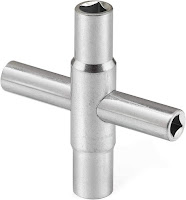By Tim Gamble
(Please Subscribe by Email.)
***This article is a follow-up to my previous article, What To Do BEFORE Losing Your Job.
Okay, you've been downsized, laid-off, restructured, or whatever euphemism for being fired that your company choose to use. Now what? How do you find a job during the middle of a bad economy? Here are some ideas:
- You are much more likely to find a job through a friend or family member than through the classifieds. This is why networking is so important, so get out there and work your network. Call or email all your friends, family, former co-workers, fellow church members, old college roommates, neighbors, industry colleagues and anyone else you know. Tell them you are out of work and ask them if they know if their company or industry is hiring. Ask them to let you know if they hear of any openings.
- Step away from your computer. Job hunting websites and apps* are definitely useful tools, and you should use them. However, even in 2023, you are still more likely to find your next job through your network of personal contacts than though the Internet, despite what the commercials say. Don't let your Internet search consume all of your job hunting time.
- Take advantage of any job-hunting help that may be offered by your former employer or your local government. Local governments, and occasionally the companies themselves, will often try to help people left unemployed by large-scale lay offs by conducting job fairs, holding job-hunting seminars, or even offering special training. Many times this is done at or through the local community college, so be sure to check with them.
- If you are a college graduate, get your college to help. Most colleges and universities have a career development office to help both current students and alumni. These offices offer everything from aptitude testing and resume writing help, to job boards listing openings provided by other alumni.
- Check out the resources of you local community college. Many have career development centers that offer everything from free and low-cost training courses to aptitude testing to skills assessment to help writing your resume. Best of all, these resources are available to the community as a whole, not just current or former students.
- Consider temporary or part-time work while continuing your job hunt. The extra income will help. Be aware of how this may or may not effect any unemployment benefits you might be receiving. Part-time or temp work also prevents gaps from developing in your work history, and shows employers that you are eager to work.
- Consider learning a trade. Demand seems soft for many so-called "white collar" professions, and likely will remain so for the foreseeable future. But there is an actual shortage of qualified trades people. Training can be had for low cost at your local community college, and you may even qualify for reduced rates (or even free) if you have been recently laid off or are currently unemployed. For more information of the trades, see the Mike Rowe WORKS Foundation.
- Don't be a "Job Snob." Be willing to settle for less until you can find more. You may have to take a job making less money, or with less prestige, than your old job. Be willing to work outside your preferred industry, or even outside your preferred geographic location. Don't despair, you can always find a new, better paying job once the economy turns around.
* The truth about job-hunting websites and apps
Despite the ads and commercials that seem to promise you that, once you join their site, you will immediately have companies lining up to hire you, it really doesn't work that way. It always takes more than a few days, sometimes even months, before you'll find a job.
I have friends who did eventually find work through those websites. And I have friends who tried, but didn't have success with those websites. It can go either way. Those websites and apps are potentially a useful tool, but are no magic solution. They should be a part of your job hunting strategy, but not all of it.
You can find Tim Gamble on social media! Follow at Gab (@TimGamble), Twitter (@TimGambleSpeaks), and TruthSocial (@TimGambleSpeaks)
---------------------------

Ad: 4-Way Silcock Key (aka Water Key) - Opens those recessed water spigots without handles that are on commercial buildings, and at parks and golf courses. Get access to water in an emergency that you otherwise wouldn't be able to get. Good for the bug-out and get home bags.
No comments:
Post a Comment
Comments are posted without moderation. Use caution when following links, and beware of SPAM and fake links. Please keep discussions civil and on-topic. NOTE: Certain ad-blockers and other security software installed on your browser may block the ability to leave comments on this website. This issue is with that software, not this website.